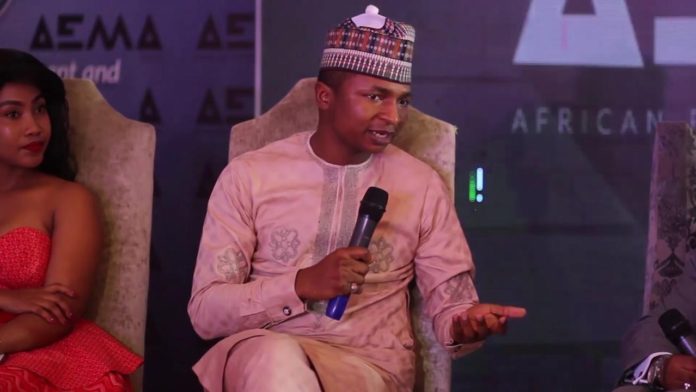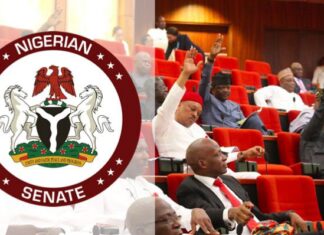Hamzat Lawal is an anti-corruption activist. He is the initiator of Follow The Money, and the founder of Connected Development (CODE), a non-profit organization that comprises data analysts, journalists, activists, and students.
He is also actively involved in the Not Too Young to Run Movement. He is an International Trainer for USAID.
TheNiche Pascal Oparada, Social Media/Tech Reporter, engaged Hamzat at the Young Africans Leadership Initiative (YALI) TechCamp Reconnect in Lagos where he spoke on issues of governance, accountability, technology and politics in Nigeria and Africa.
You have been in this business of Follow the Money for quite a while now. How has it been?
It’s been challenging and exciting. Follow the Money started in 2012 advocating for and tracking the release of $5.3 million meant for street children in Zamfara State. And so far we’ve tracked more than N180 billion in the 36 states and we’ve impacted over five million lives directly. And Follow the Money is now Pan-African. We are in Kenya, Zambia, Cameroon and we just started in Liberia.
Why are you expanding across Africa?
Because we believe that corruption is not just in a Nigeria problem and for us to grow as a continent, we must make sure that simultaneously, every country in Africa must be accountable. In the past it was rural-urban migration, now it is cross-country and cross-continental migration. We believe that if we can curb corrupt practices, not just in Nigeria but the African continent at large, then the issue of better service delivery will be settled. And that is why the African Union invited me last November to speak to heads of states and heads of governments at the African Union level.
Are there issues you are following in this present administration?

We are following issues around basic education, particularly the Universal Basic Education Fund. We are also following money around the National Primary Healthcare Development Agency. We are also looking at the extractive sector. Nigeria gets its revenue from oil and gas. Over 80 per cent of our revenue is generated through oil and gas from the Niger Delta region. They don’t have potable drinking water. The children don’t go to school. For us, we are also looking at how we can engage some of the host communities and broker dialogue and hoping that we have less vandalism.
What’s your level of involvement with YALI?
I am an international trainer for U.S. Department under YALI. And what this means is that USAID flies me around the world to build the capacity of young people. So far, I’ve built the capacity of over 2,000 young people from the African continent. From Asia and Latin America.
You were involved in the Not Too Young to Run movement. From what you saw in the last election, are the young people in Nigeria ready to take the reins of power?
The success of the Not Too Young to Run law is that it produced the youngest state lawmaker in Nigeria. So, today we have a 26-year-old lawmaker who has been elected in Akwa Ibom State. Today we have someone who is less than 30 years old who’d resume work with the ninth national assembly in June.
For me, it tells us that young people are not just ready but willing to take over the helms of affairs in Nigeria. For us, we are saying it is not just about having young people run and vie for public office. We want young people with competence, with good character, with capacity so that they will be able to ensure that Nigeria enjoys the dividends of democracy.
During the just concluded elections, one lesson we learned as a movement is that fact we need to go back to the National Assembly and tackle the issue of god-fatherism and party supremacy whereby money was playing a central role. As young people, we don’t have the required financial resources because we believe politics is meant to be competitive. The best idea should be able to lead. So, we’ll go back to amend the constitution and put a cap on political campaign spending so that the right set of people will get into government.
The involvement of the youths in the last election was questionable. Some were used as thugs by politicians to do all sorts of things. What is your movement doing so that in the election, there is a paradigm shift?
When we began to advocate for youth participation in government, the older politicians said we don’t have the knowledge or we don’t have the experience and we always ask them, how much have you invested in human capital development of young people? And for us as leaders of a movement, what we’ve done is before the election we hosted Convergence where we brought 300 participants from across the country.
Now we are planning to host Convergence 2.0. We want to bring young people that won the election. We want to bring young people that lost the election. We want to bring young people that are used for political thuggery and have a conversation and say that we are going to use our own limited resources and tell the old politicians to keep quiet because you can’t keep complaining about young people and yet you are not investing in their education, in their well-being. You are not investing to enhance their capacity. Rather you want to teach them the old traits of corruption and mismanagement of public resources.
So, for us we’re investing in young people through dialogue across grassroots communities and, most importantly, young people will provide a presidential candidate that will vie for office in 2023.
You are going back to the national assembly, are you considering independent candidacy?
Yes! In the age reduction bill, there were two amendments that we sought. The first was to reduce the age of people running for public office and second is to allow independent candidacy. For us, we believe that if we have independent candidates, then it will cripple party supremacy whereby, as long as you are popular, you will want to represent the interest of your country, of your community and if the people believe in you, they will vote for you.
And if you look at the trend, most people actually vote for candidates and not for political parties. But most people believe that it is only the political party platform that will allow you to run for office.
We would approach the ninth National Assembly and we are looking at reducing the age further and ensuring that we have independent candidacy and do away with money politics so that we put a cap on campaign finance.
What have been the challenge of running Follow the Money?
For us, one of the major challenges is accessing communities. It will surprise you that for us to travel from Abuja where our head office is to some grassroots communities, it will take you more than 25 hours if you are travelling by road. In some communities, they don’t have roads, they don’t even exist to the government. But if you look at government appropriations, there is money there for these communities.
Another biggest challenge is the fact there is a lot of secrecy in government. The government will appropriate and budget money but they will not give you budget information to be able to calculate the money.
And lastly is resources. We have little or no financial resources to follow the money.











